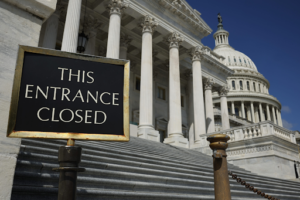News, discussion and debate surrounding the banning of the infamous social media app, TikTok, is nothing new. The House of Representatives has already passed a bill forcing TikTok’s parent company, ByteDance, to either sell the platform or face a ban in the U.S.
Now, what? If the Senate passes the legislation and President Biden signs it, will the United States have successfully curbed blatant Chinese influence?
Well, if stopping China’s influence on Americans through social media is a priority of the federal government, then Congress has a lot more legislation to draft.
Ultimately, the opportunity for Chinese influence is not just limited to TikTok – even though it may be the most blatant on that certain platform.
For example, the tech giant Meta also has an interesting past and current reality with Chinese influence, which could pose just as much of a threat as any effects from TikTok.
Meta has known connections with Chinese financial ties, which could also be a potential opportunity for the Chinese government to influence Americans.
“In a call following Meta’s blowout Q4 2023 earnings report, its CFO revealed a source of much of its recent growth: ‘The online commerce and gaming verticals benefited from strong demand by advertisers in China reaching people in other markets. In 2023, revenue from China-based advertisers represented 10 percent of our overall revenue and contributed 5 percentage points to total worldwide revenue growth,’” according to Intelligencer via New York Magazine.
Similar to Meta, Amazon has crucial economic ties with China that, if not already so, could be open to Chinese Communist Party-related control or influence on who, where and how Amazon sells products or conducts business.
“Amazon acknowledged, for the first time in such explicit terms, the scope of its dependence on not just products manufactured in China but on Chinese sellers and their marketing budgets:
‘[B]ecause China-based sellers account for significant portions of our third-party seller services and advertising revenues, and China-based suppliers provide significant portions of our components and finished goods, regulatory and trade restrictions, data protection and cybersecurity laws, economic factors, geopolitical events, security issues, or other factors negatively impacting China-based sellers and suppliers could adversely affect our operating results,’” according to the Intelligencer via New York Magazine.
Many lawmakers, however, most fear TikTok sharing massive amounts of data with the Chinese government.
“Lawmakers from both parties – as well as law enforcement and intelligence officials – have long expressed concerns that Chinese authorities could force ByteDance to hand over data on the 170 million Americans who use TikTok,” according to the Associated Press.
If Congress is so concerned with national security risks from the Chinese Communist Party taking advantage of technology, then Congress has every right to present evidence and ban the platform (which has partially occurred in the House).
However, if the federal government is going to ban TikTok, ban other Big Tech companies or platforms with Chinese connections that could be used against the United States.
The threat of potential Chinese Communist Party exploitation through social media companies is a very real fear. Whether said exploitation is in the limelight or through covert means, national legislature must address it.
For security’s sake, however, Congress must be consistent in its actions of security – curb Chinese influence on all fronts, not just in one blatant incident. Congress needs consistency.
Read about Big Tech’s addiction to China here.
Read about the bill in the House banning TikTok here.
Read about the concerns regarding TikTok here.













Be First to Comment